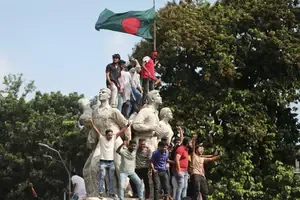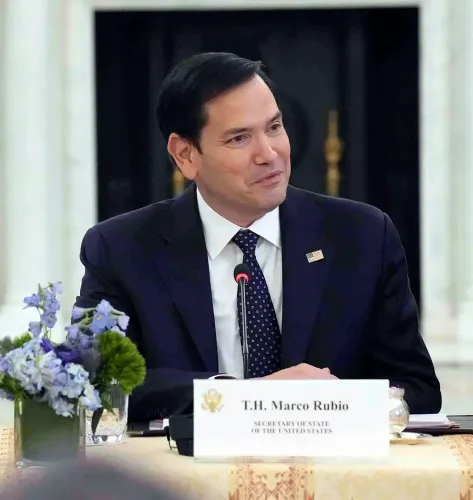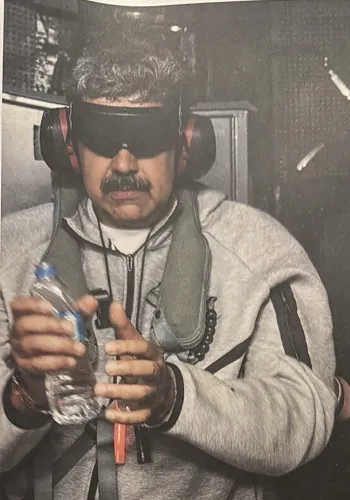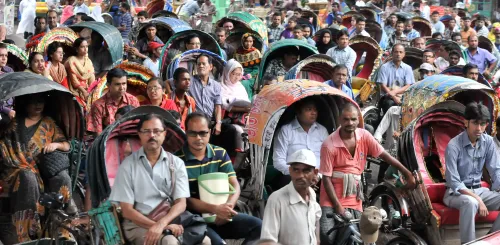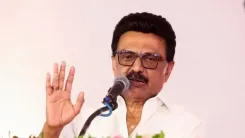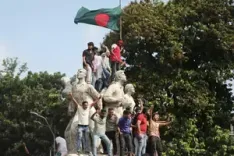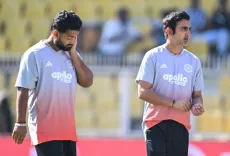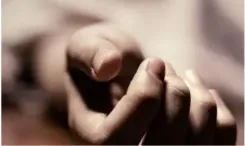What Are Jagannath University Students Protesting For?
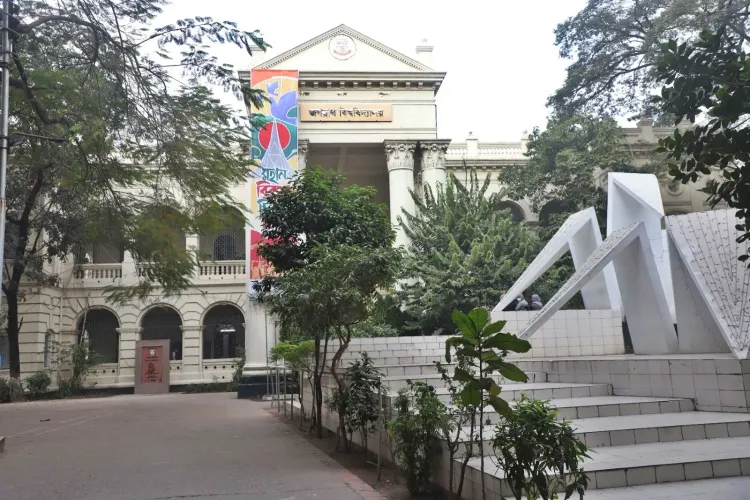
Synopsis
Key Takeaways
- Jagannath University students are protesting for essential housing allowances.
- A full budget for the fiscal year 2025-26 is a key demand.
- The construction of a second campus is crucial for future expansion.
- Law enforcement presence is significant, indicating rising tensions.
- Protests at other universities highlight broader student issues.
Dhaka, May 15 (NationPress) Students at Jagannath University in Bangladesh are voicing their discontent with the administration by staging protests demanding the fulfillment of their three-point agenda, which emphasizes house allowances, a comprehensive budget for the university, and a new campus facility.
On Thursday, the students took to the streets, blocking the Kakrail intersection in Dhaka and creating significant traffic disruptions in the area as their demonstration entered its second day.
The protesters made it clear that they would not leave until their three-point agenda is addressed, following unsuccessful negotiations with police and Information Advisor Mahfuj Alam, according to reports from local media.
Their demands consist of a housing allowance for 70% of the university's students starting from the next fiscal year, a complete budget approval for Jagannath University for the fiscal year 2025-26, and the construction of a second campus.
In the early hours of Thursday, more than a hundred students, along with some faculty members including the Vice-Chancellor and Pro-Vice Chancellor, maintained their sit-in at Kakrail intersection, which is located close to the official residence of Chief Advisor Mohammad Yunus.
Local media reported that the students reiterated their stance of not vacating the area until their demands are acknowledged.
Additionally, on Wednesday, Information and Broadcasting Advisor Mahfuj faced a barrage of bottles when he attempted to engage with the students, as reported by Prothom Alo, a leading Bangladeshi daily.
In response to the incident, a student remarked, 'We don't see it as a major issue because he went to the government as our representative. Compared to the police attack on students, this is nothing.'
Another student declared, 'We have decided that we will not leave this place under any circumstances. If any untoward incident occurs, the advisors and the government must take full responsibility.'
'We've been here since yesterday. We will continue our protest until our demands are acknowledged,' stated a different student.
Meanwhile, a considerable presence of law enforcement, including police and the Border Guard Battalion (BGB), remains on standby, with barricades set up in front of the protesters.
Earlier on Wednesday afternoon, more than 50 individuals were injured when police intervened to halt a long march organized by university teachers and students heading towards the chief advisor's official residence, Jamuna, to advocate for their three-point agenda.
Reports indicate that law enforcement deployed tear gas, sound grenades, and water cannons to disperse the crowd.
In a related incident, protests erupted at Dhaka University as a group of students under the banner 'Students Against Terrorism' held a torch procession on campus Wednesday night, demanding justice for the murder of fellow student Shahriar Alam Shammo.
'In the last nine months, we have witnessed three deaths. One was Tofazzal, another was found hanging from a tree, and the latest was a student from Dhaka University. The DU VC must be held accountable for these murders. We reject the condolences expressed by the DU administration,' remarked a protesting student, according to Bangladeshi media outlet UNB.


